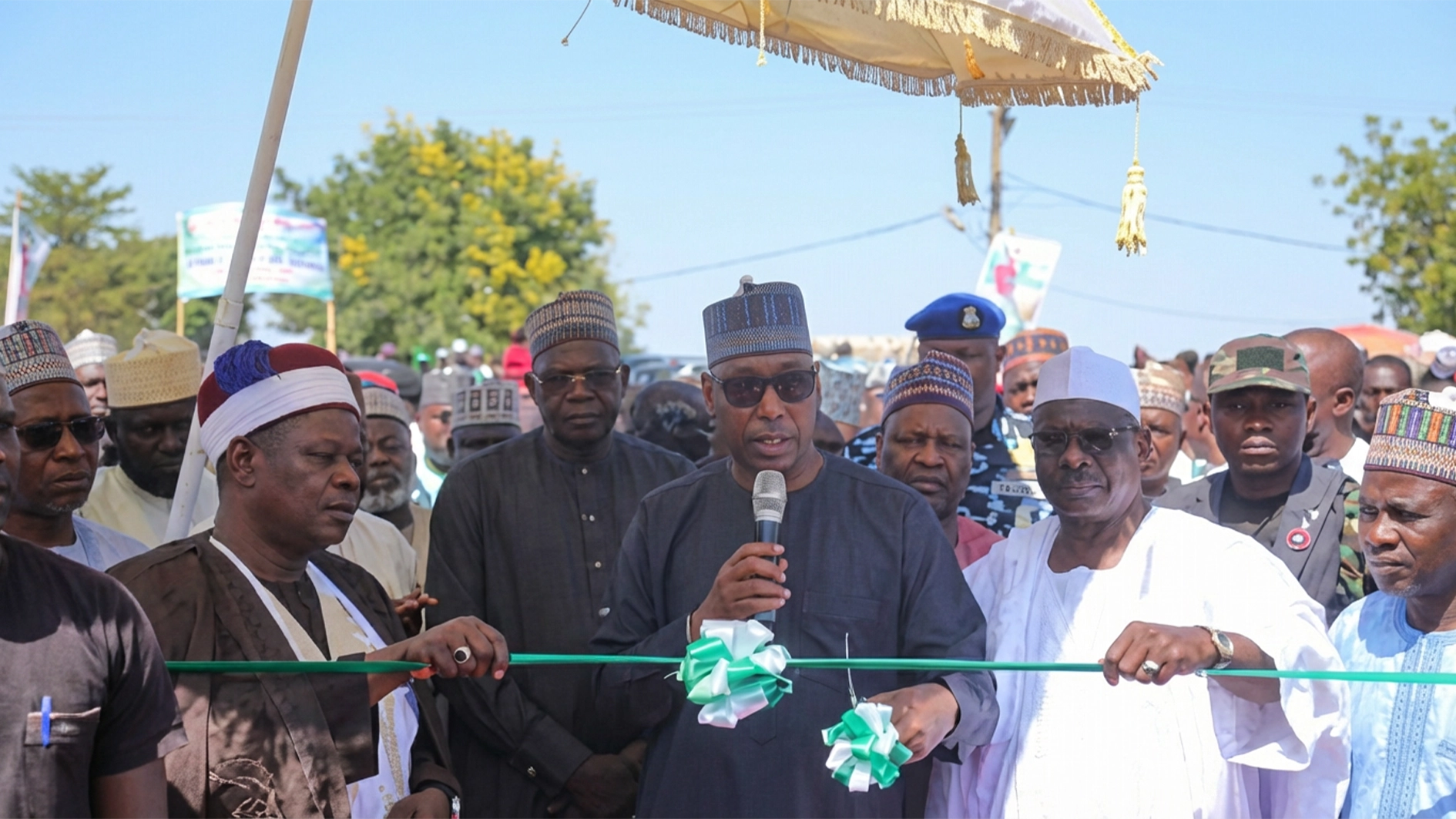
The COVID-19 pandemic has affected lives and livelihoods, making survivors miserable. The hope of future leaders of Nigeria is currently put on hold, literally. For those who have sought better higher education in the United Kingdom, a home return looms. IYABO LAWAL examines the economics of studying abroad in a COVID-19 era.
Parents to cough out about N52b for 2020/21 academic section
What is the cost of Nigerian students studying at various universities in the United Kingdom on the Nigerian economy in a post-COVID-19 enterprise?
First, how many Nigerians are studying in UK universities?
“Around 11,000 Nigerian students chose to study in the UK last year,” answered UK universities minister, Michelle Donelan, in a recent statement.
Despite the exciting prospect of having a large number of students from Nigeria alone, Donelan is not oblivious of the uncertainties of current realities, admitting: “As thousands of students from Nigeria would usually be considering their next steps, a global pandemic has caused huge disruption to our daily lives.”
She added, “As the universities minister, I want to make a promise to our students from Nigeria that this will not put a stop to your education. We stand by you and are doing everything we can to support you. Our universities are going above and beyond to keep students and staff safe.”
The UK government walking the talk announced that a new, streamlined immigration route for graduates, the “Graduate route”, will be available from summer 2021, meaning students starting this year will be able to stay and work or look for work in the UK, at any skill level for two years.
This new arrangement offered some reprieve to Nigerian students, giving them certainty and the opportunity to kickstart a career and consider their next steps without being harassed by the UK authorities.
Auspicious times these are for Nigerian students as regards the UK’s latest move.
Yet, with the COVID-19 pandemic turning every human system on its head, particularly the economy, it is looking daunting how Nigerian students will continue or be able to pay tuition. Many states in Nigeria have reviewed their 2020 budgets, including the Federal Government.
Worse still, the naira’s value has taken a consistent dip. As of Sunday, a dollar exchanged for N385.3777 and exchanged for N440 at the black market. The pound was N478.5179 officially and was N553 at the black market.
Assuming 11,000 Nigerian students in the UK are to cough up, for tuition, £10,000 each (at £1/N478.5179), at least N52 billion would have been used to support overseas tertiary education. The figure does not include other expenses like accommodation.
According to the Higher Education Statistics Agency (HESA), experts in UK higher education data, and the designated data body for England, its 2018 data showed that Nigeria had seen a 42 per cent decline in student numbers coming to the UK over a five-year period, dropping behind the United States, Hong Kong, and Malaysia.
“At this uncertain time,” said Donelan, “I want all students to know we are going through this together… Nobody should have to put his or her future on hold because of this virus.
“I look forward to welcoming international students in the future because you are a large part of what makes our higher education sector world-class.”
According to a report by Nairametrics, international undergraduate students pay an annual £13,394 for classroom taught courses; £15,034 and £24,169 respectively for laboratory and clinical courses. Postgraduate students have to cough up £13,442, £15,638, and £20,956, respectively for the classroom, laboratory, and clinical-based courses. For MBA students, the tuition is £18,226 on the average.
In addition to the tuition, the UK’s national union of students (NUS), noted that the average annual cost of living outside of London for students is £12,056. To study in London, Nigerian students would have to part with about £16,000 annually. For visa purposes, international students pay at least £1,265 for each month of stay while those outside London pay at least £1,000 per month in order to prove that they can cover the cost of living in the UK.
According to study in-uk.com, undergraduate fees for international students from outside the EU begin at around £10,000 per year, whilst at the postgraduate level, they begin at around £12,000. If you wish to study medicine or MBA though, they can rise up to £32,000 per year.
The average living costs for international students is £12,180 per year. This can be much lower or higher depending on where in the UK you wish to study though. For example, in London, living expenses are considerably higher than the equivalent cost in a different city such as Liverpool or Birmingham.
As of 2015, it will cost a student studying in the UK $35,710, on the average annually (tuition and living expenses). According to one estimate, Nigerian parents spend above the Federal Government’s yearly budget of $750 million to educate their children in the UK.
Another estimate put the total average cost of studying in the UK at £22,200 or $31,380 per year. Going by the 2017 estimates, Nigerian parents spent $423 million in the UK. That is N152 billion.
These figures will now likely look different to many parents, guardians, or sponsors who have students in UK universities. The reason is not far-fetched: the COVID-19 pandemic has ravaged many countries in the world leaving their economies prostrate. Many businesses have since closed shop. Others in a bid to stay afloat have sacked, furloughed, or slashed the salaries of employees.
With that, one possibility stares some of the 11,000 Nigerian students in UK universities in the face: returning home to enrol in Nigerian universities. That future is a nightmarish prospect to be considered as Nigerian universities, especially public ones, have become shambolic, their curricula considered out of date, and out of touch with current realities.
A new report from Moody’s Investors Services highlights the financial impacts of the pandemic on higher education institutions around the world.
“We expect rated universities in all of our current jurisdictions – US, Canada, UK, Australia, Singapore, and Mexico – to enrol fewer students for the next academic year than planned, due to the outbreak,” said Jeanne Harrison, Vice president, and senior analyst at Moody’s.
“In addition, if campuses remain closed for part of the year, income from residence halls, catering, conferences, and sporting events will be lower than budgeted. Endowment and gift income may also decline.”
Moody’s analysis in April highlighted that the scale of the impact on higher education will depend largely on the duration of the outbreak.
“If university campuses can reopen in time for the next academic year, the effect on demand and budgets will be more manageable,” adds Moody’s.
“International student flows will depend on how the outbreak and policy response evolve in individual countries.”
Yet, the Federal Government, with its half-hearted attempts to improve Nigeria’s university system is not helped by its budget allocations, especially in the last five years. There is even no talk about providing interventions for universities.
In the United States, a $2 trillion emergency relief package passed in March included $14 billion to higher education. Yet, the American Council on Education (ACE) pronounced that a “woefully inadequate” amount and called on congress to earmark another $47 billion in emergency aid that “would be equally divided between students and institutions” and that could “at least partially mitigate the damage done by this pandemic.”
In its own response, the Nigerian government slashed the 2020 budget by N318 billion, reducing it from N10.594 trillion to N10.276 trillion. According to BudgIT, the nominal amount budgeted for education has seen an overall increase of 24.5 per cent between 2015 and 2020, pointing out that to understand the level of prioritization, however, the percentage allocation must also be considered.
Using this metric instead, BudgIT said there is a clear reduction in allocation thus signifying reduced focus on education. The United Nations Education, Scientific, and Cultural Organization (UNESCO) recommends that 15-20 per cent of the total budget should go to the education sector. At a glance, 6.48% of the 2020 budget was allocated to education; 7.11% in 2019; 7.14% in 2018; 7.27% in 2017; and 9.20% in 2016.
While foreign universities are coming up with ingenious means to start a new session using educational technologies, Nigerian universities seem stuck in the “medieval” system, making it unattractive to the 11,000 students who may seek higher education outside.
UK universities and their counterparts across the globe are considering how teaching could meet social distancing guidelines and they have already moved to learn online so that high-quality teaching and assessment can continue in the interim, no matter whether students are in the UK or in their home country.
While it is difficult to know how long the current disruption will last, it is hoped that the burden on parents will not be too heavy, while hoping for improvement in home universities.






